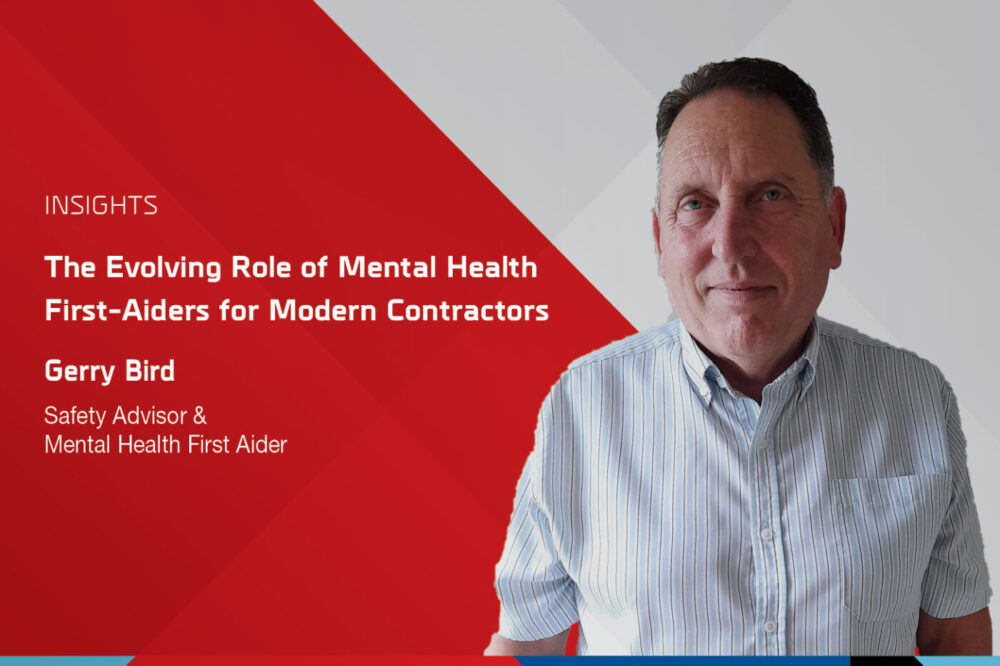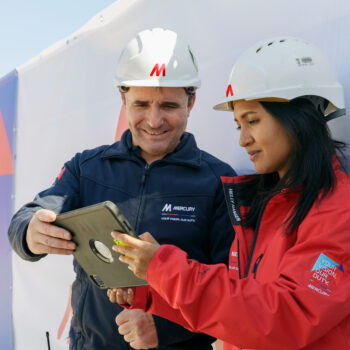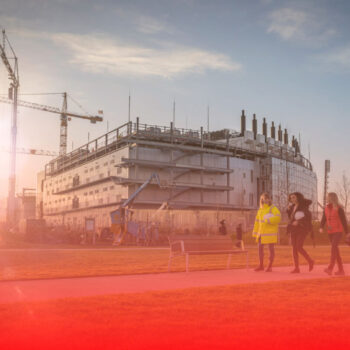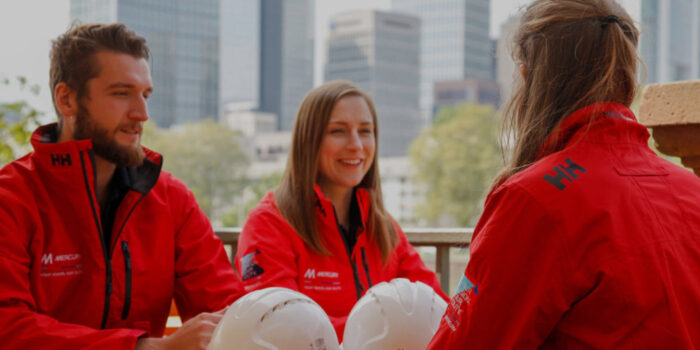News & Insights

The Evolving Role of Mental Health First Aid for Modern Contractors
We recently spoke to one of Mercury’s Mental Health First Aiders (MHFA) Gerry Bird about everything to do with MHFA.
Can you tell us about your background?
I have worked as a safety advisor in the construction industry for 24 years. During this time, I have worked on many of the largest projects in Ireland, from Semiconductors to Pharmaceutical and Data Centres. Working as a safety advisor on these projects has given me the opportunity to interact and get the unique perspectives of our people who come from many different countries and cultures on our construction sites. Having this daily interaction with our operatives helps us to make decisions today that will positively impact us tomorrow.
Can you tell us about the traditional role of the Environmental, Health & Safety (EHS) department traditionally vs now when MHFA has come along?
As a safety professional within construction, there was never much talk about mental health within our industry. Safety was present to assist in the day-to-day operations ensuring that all operatives were working safely i.e., not taking dangerous short cuts, making sure everyone is compliant with all of the Personal Protective Equipment (PPE) rules and having regular conversations in the field with personnel to ensure that they understand and are committed to following our safe plan of action etc.
MHFA became more prevalent in later years when statistics became readily available and showed that construction industry workers, a large majority of them male and often young, are a demographic that disproportionately deals with mental health issues and has a higher-than-average rate of suicide. There are also statistically higher levels of issues such as drug addiction, alcohol abuse and gambling addiction.
It is also fair to state that EHS have always been the support function for personal issues within our project teams for many years prior to the formalisation of MHFA training.
Tell us about the course itself
The course for MHFA was over two days and covered how to provide help for people experiencing mental health difficulties and associated crises and ensuring that you remain completely non-judgemental. There was great interaction among the group with the setup of internal workshops.
What has been your experience of being an MHFA so far, the pressures and the positives?
I’ve had some very good positives from working, talking, and listening to colleagues who for different reasons at one point felt that life wasn’t worth living but ultimately came out the other side and saw the positives in their lives. On the negative side, I have been through the loss of a very good colleague who took his life earlier this year, having spent many times talking, meeting, and listening to his problems I was totally devastated when I received a call late one Friday evening to say he had taken his life.
Where do you see MHFA going in the future?
I believe MHFA will continue to have a major role to play in the construction industry as more and more people begin to open up on their real-life issues. They are starting to feel it’s good to open up to a MHFA or colleague and not to keep everything bottled up inside. They can see there is light and someone willing to listen.
Do you have any general words of advice about this subject?
The greatest gift you can give someone is time. Time to listen, time to talk, time to be there for them – time to heal.
ABOUT US HEALTH, SAFETY & WELLBEING


